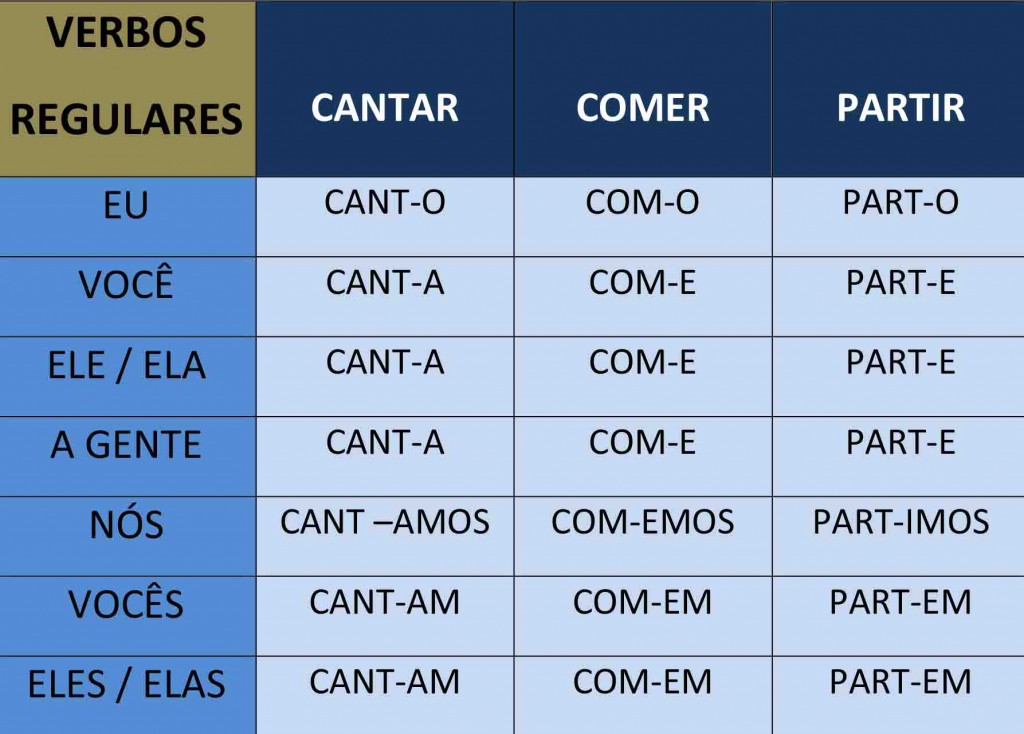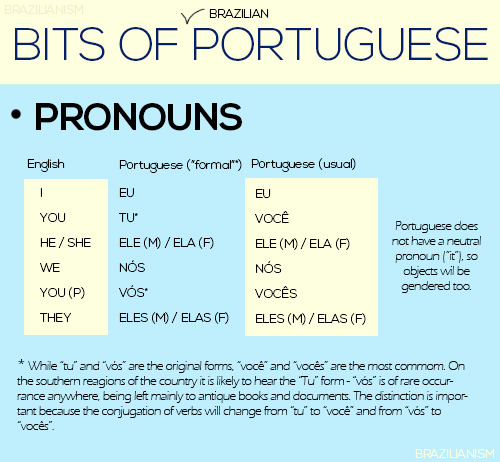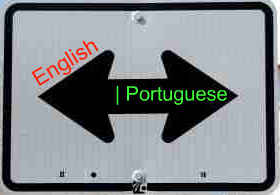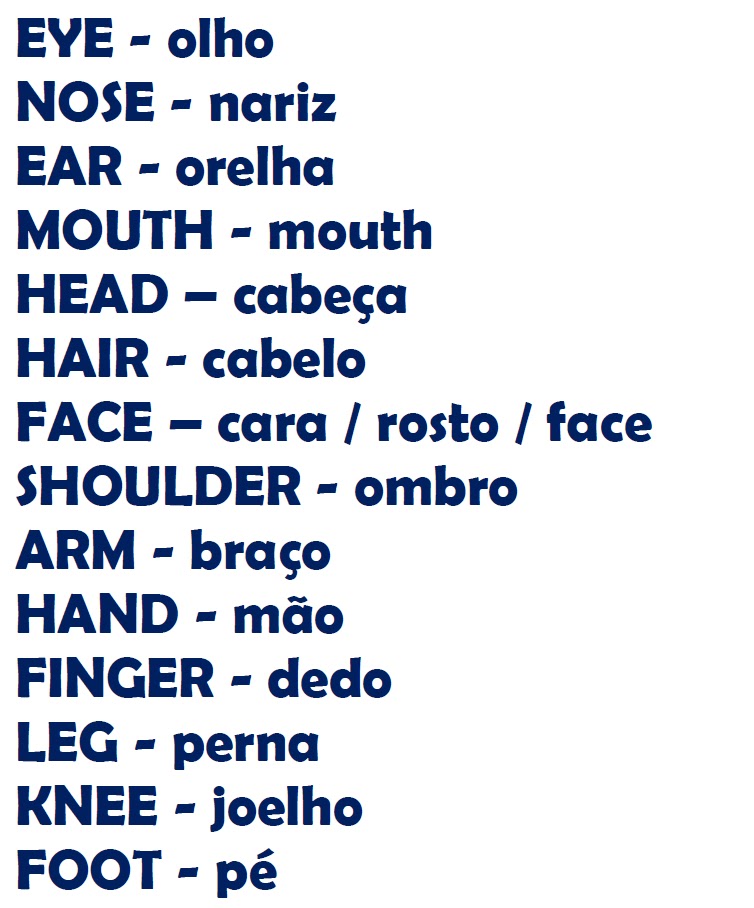
Basic Portuguese Phrases
Remember that, when travelling, if you know a few basic phrases, you can get by in any Portuguese speaking country.
Armed with basic Portuguese phrases you can communicate with the locals, even if you don’t know how to say anything else in Portuguese.
If you are travelling to a Portuguese-speaking country, I strongly recommend you to go though this page now, and learn the words and expressions you need to get by.
OK, so… let’s go straight to business.
It’s quite common in any Portuguese speaking country, specially in small towns and villages, to greet people in the streets, even if you don’t know them. So as they pass by you, you’ll be likely to hear:
Bom dia.
[bong-deer]* which means “Good morning”.
Boa tarde.
[boah-tard]* for “Good afternoon”.
Boa noite.
[boah-no-ee-te]* for “Good evening” or “Good night”.
You should greet them back the same way. It shows that you respect them and like to be respected as well.
You will hear
Bom dia from midnight to midday,
Boa tarde from 12pm until it gets dark and
Boa noite since it gets dark until midnight,or when you want to wish a good night to anyone.
Como?
[komoo?] is another very important word. If someone comes to you and say something that you can’t hear properly or can’t understand, this is the way you say “Sorry?” or “I didn’t get that”. In other words, you can also use this word to ask someone to repeat something again.
Desculpe!
[des-cool-peh] is the word you use when you are sorry or when you “did something wrong and you want to apologise for it. In short, this means “I’m sorry!”. You may also use this word to catch someone’s attention as well, for instance at the restaurant when you want to call the waiter.
Não faz mal!
[nah-fash-mahl] is the way you reply to “desculpe” . Equivalent ways to say “Não faz mal” this in English would be “no worries” or “no problem”.
Com licença!
[co-lee-sensah] is also one of the most important basic Portuguese phrases. This means “excuse me” You might use this when you want to get out of the bus when it is very crowded inside and you have people in your way.
Obrigado/obrigada
[oobree-gado] or [oobree-gadah]. Men say
“obrigado” and women say
“obrigada” to say “thank you”.
De nada!
[de nah-dah] in Portugal and [chee nah-dah] in Brazil. This is what you say when people thank you for something you did for them. The equivalent in English would be “you’re welcome!”
These last 2 basic Portuguese phrases are of extreme importance and you should use them without thinking. Practice them with a friend or with your partner.
Por favor!
[poorh pha-vohr]. You say this to say “please” in any circumstance you can imagine. However, in Portuguese, when you give commands to people (when you ask them to do something) you don’t have necessarily to say “por favor” all the time, like you do in English. Normally the intonation of your voice will show whether you are being suggestive or bossy!
Está bem!
[tah baing] to say “It’s OK” when you agree with someone’s suggestion, or to mean “thatºs enough” when the waiter is putting food on your plate and you want him to stop.
Fixe!
[feesh] (in European and African Portuguese) to say the modern expression “cool!”
Legal!
[lay-gah-oo] (in Brazilian Portuguese) to say the modern expression “cool!”
Então? tudo bem?
[eng-ta-ong? too-doo bah-ing?] means in colloquial European Portuguese “So, how are you?” or “So, what’s up?”.
Oi! e aí?
[oy? ee ah-ee?] means in colloquial Brazilian Portuguese “So, how are you?” or “So, what’s up?”.
Como se diz em português + English word?
[coo-mo seh deesh en poor-too-gaysh]. You would use this sentence to find out how you say something in Portuguese. You obviously can use this sentence only if you know the person you are talking to knows some English, so they will tell you the meaning you are looking for. (e.g. Como se diz em português “please”? – how do you say in Portuguese “please”?)
Como se pronuncia em português + Portuguese word?
[coo-mo seh proo-noon-seeah en poor-too-gaysh] this means: How do you pronounce in Portuguese?” Obviously if you are struggling with pronouncing any Portuguese word you see somewhere (in a menu, advert, or article, etc), and you want to pronounce it correctly, you will use this phrase.
Como se escreve?
[coo-mo seh sh-cray-veh]. You’d use this sentence if you want to know how you’d spell something in Portuguese. This means “How do you spell?”.
O que quer dizer “xyz” em inglês?
[Oo kay kehr dee-zerh “xyz” en een-glaysh?] is the sentence you use if you have the Portuguese word but you don’t know what it means. So you ask “What does it mean in English?”.
Pode repetir?
[pod ray-peh-teer?]. This is the same as “como?” see above, but in a more polite way. It means “could you repeat it please?”.
Não percebo!
[naw pehr-say-boo] – I don’t/can’t understand.
Não percebi!
[naw pehr-say-bee] – I didn’t understand / I didn’t catch it.
Não entendo!
[naw en-tehn-doo] – I don’t/cant understand (more used in Brazilian Portuguese).
Não entendi!
[naw en-tehn-chee] – I didn’t understand (more used in Brazilian Portuguese).
Não sei!
[naw say] – “I don’t know”. This phrase is particularly useful, because anyone in the streets can come to you and ask for information about something. So this is what you have to say – “I don’t know!”.
Não me lembro!
[now meh lim-broo] – I don’t/can’t remember.
I’d recommend you print out this page and take it with you every time you need to communicate with someone in Portuguese.
One of the reasons you should print this out may be because you may want to put 2 of these sentences together to sound more natural, for instance,
“desculpe, não sei”, and you’ll have them at hand to remember.
You’ll see that, with these basic Portuguese phrases, you’ll feel more confident when you talk to people or people talk to you.
You will also feel much more comfortable when travelling around and socialising with Portuguese native speakers.
I’d also advise you not to stop your learning with this basic Portuguese phrases, but to surf through the other pages of this site to find out more useful information about Portuguese and Portuguese speaking countries.
And that’s it! These are the basic Portuguese phrases you need to get by!
Armed with these basic Portuguese phrases, you can get by without embarrassment. Believe me!
Last thing to remember: If you don’t know any more Portuguese, you may choose to walk away… or find out if they speak English. If you want to ask them if they speak English say:
Desculpe! Fala inglês?
[des-cool-peh! fah-la een-glaysh?].
You may also inform them that you only speak a little Portuguese. If this is the case, you must say.
Não falo muito português!
[nah fahloo moo-too poor-too-gaysh].
And yes! This is the end of this page now! So these are the basic Portuguese phrases you need to know if you are going to any Portuguese speaking country.
Essentials
| English↕ |
Portuguese↕ |
| Hello |
Bom dia |
| Good evening |
Boa tarde |
| Goodbye |
Adeus |
| See you later |
Até Logo |
| Yes |
Sim |
| No |
Não |
| Excuse me! |
Por favor! |
| Excuse me |
Se faz favor |
| Thanks |
Obrigada |
| Thanks a lot |
Muito obrigado! |
| Thank you for your help |
Obrigada pela sua ajuda |
| Don’t mention it |
De nada |
| Ok |
De acordo ! |
| How much is it? |
Quanto custa por favor? |
| Sorry! |
Desculpe ! |
| I don’t understand |
Não compreendo |
| I get it |
Compreendi |
| I don’t know |
Não sei |
| Forbidden |
Proibido |
| Excuse me, where are the toilets? |
Onde é a casa de banho por favor? |
| Happy New Year! |
Feliz ano novo! |
| Happy birthday! |
Feliz aniversario! |
| Happy holiday! |
Boas festas! |
| Congratulations! |
Parabéns |
Conversation
| English↕ |
Portuguese↕ |
| Hello. How are you? |
Bom dia. Tudo bem? |
| Hello. I’m fine, thank you |
Bom dia Vou bem, obrigado |
| Do you speak Portuguese? |
Tu falas português? |
| No, I don’t speak Portuguese |
Não, não falo português |
| Only a little bit |
Só um pouco |
| Where do you come from? |
De onde és ? |
| What is your nationality? |
És de que nacionalidade? |
| I am English |
Eu sou inglesa |
| And you, do you live here? |
E tu, vives aqui? |
| Yes, I live here |
Sim, moro aqui |
| My name is Sarah, what’s your name? |
O meu nome é Sarah. E o teu? |
| Julian |
Juliano |
| What are you doing here? |
O que é que fazes por aqui? |
| I am on holiday |
Estou de férias |
| We are on holiday |
Nós estamos de férias |
| I am on a business trip |
Ando em viagem de negócios |
| I work here |
Trabalho aqui |
| We work here |
Nós trabalhamos aqui |
| Where are the good places to go out and eat? |
Quais são os bons lugares para comer? |
| Is there a museum in the neighbourhood? |
Há algum museu aqui perto? |
| Where could I get an internet connection? |
Onde tenho acesso à internet? |
Restaurant
| English↕ |
Portuguese↕ |
| The restaurant |
O restaurante |
| Would you like to eat? |
Queres comer alguma coisa? |
| Yes, with pleasure |
Quero, pois ! |
| To eat |
Comer |
| Where can we eat? |
Onde podemos comer? |
| Where can we have lunch? |
Onde podemos almoçar? |
| Dinner |
O jantar |
| Breakfast |
O pequeno almoço |
| Excuse me! |
Por favor! |
| The menu, please |
A ementa, se faz favor |
| Here is the menu |
Aqui tem o menu |
| What do you prefer to eat? Meat or fish? |
O que preferes comer? Carne ou peixe? |
| With rice |
Com arroz |
| With pasta |
Com massa |
| Potatoes |
Batatas |
| Vegetables |
Legumes |
| Scrambled eggs – fried eggs – or a boiled egg |
Ovos mexidos – estrelados – ou ao casco |
| Bread |
Pão |
| Butter |
Manteiga |
| Salad |
Uma alface |
| Dessert |
Uma sobremesa |
| Fruit |
Fruta |
| Can I have a knife, please? |
Você tem uma faca por favor? |
| Yes, I’ll bring it to you right away |
Sim, trago já |
| a knife |
Uma faca |
| a fork |
Um garfo |
| a spoon |
Uma colher |
| Is it a warm dish? |
É um prato quente? |
| Yes, very hot also! |
Sim, e muito temperado também |
| Warm |
Quente |
| Cold |
Frio |
| Hot |
Temperado com especiarias |
| I’ll have fish |
Vou escolher peixe! |
| Me too |
Eu também |
Taxi
| English↕ |
Portuguese↕ |
| Taxi! |
Táxi! |
| Where would you like to go? |
Onde deseja ir? |
| I’m going to the train station |
Vou para a estação |
| I’m going to the day&night Hotel |
Vou para o hotel Dia e Noite |
| Can you take me to the airport, please? |
Podia levar-me ao aeroporto? |
| Can you take my luggage? |
Pode levar a minha bagagem, se faz favor? |
| Is it far from here? |
Fica longe daqui ? |
| No it’s close |
Não, é mesmo aqui ao lado |
| Yes it’s a little bit further away |
Sim é um pouco mais longe |
| How much will it be? |
Quanto vai custar? |
| Take me there, please |
Leve-me aqui por favor |
| You go right |
É à direita |
| You go left |
É à esquerda |
| It’s straight on |
É sempre à direito |
| It’s right here |
É aqui |
| It’s that way |
É por ali |
| Stop! |
Pare! |
| Take your time |
Não se apresse |
| Can I have a receipt, please? |
Pode-me fazer uma factura por favor? |
Transportation
| English↕ |
Portuguese↕ |
| Excuse me! I’m looking for the bus stop |
Por favor! Procuro a paragem de autocarros |
| How much is a ticket to Sun City? |
Qual é o preço do bilhete para a cidade do sol por favor? |
| Where does this train go, please? |
Por favor, para onde vai este comboio ? |
| Does this train stop at Sun City? |
Este comboio pára na cidade do Sol? |
| When does the train for Sun City leave? |
Quando parte o comboio para a cidade do Sol? |
| When will this train arrive in Sun City? |
Quando chega o comboio da cidade do Sol? |
| A ticket for Sun City, please |
Um bilhete para A cidade do Sol por favor |
| Do you have the train’s time table? |
Tem o horário dos comboios |
| Bus schedule |
O horario dos autocarnos |
| Excuse me, which train goes to Sun City? |
Qual é o comboio para A cidade do Sol por favor? |
| This one |
É este |
| Thanks |
Obrigada |
| Don’t mention it, have a good trip! |
De nada. Boa viagem! |
| The garage |
A oficina |
| The petrol station |
O posto de gasolina |
| A full tank, please |
Pode atestar, se faz favor |
| Bike |
Bicicleta |
| Town centre |
O centro da cidade |
| Suburb |
A periferia |
| It is a city |
É uma grande cidade |
| It is a village |
É uma aldeia |
| A mountain |
Uma montanha |
| a lake |
Um lago |
| The countryside |
A campanha – O campo |
In case of trouble
| English↕ |
Portuguese↕ |
| Can you help me, please? |
Podes ajudar-me por favor? |
| Can you help me please? |
Pode dar-me uma ajuda ? |
| I’m lost |
Estou perdido |
| What would you like? |
Posso ajudar? |
| What happened? |
O que é que aconteceu? |
| Where could I find an interpreter? |
Onde posso encontrar um tradutor? |
| Where is the nearest chemist’s shop? |
Onde é a farmácia mais próxima? |
| Can you call a doctor, please |
Pode chamar um médico por favor? |
| Which kind of treatment are you undergoing at the moment? |
Que tratamento é que segue neste momento? |
| a hospital |
Um hóspital |
| a chemist’s |
Uma farmácia |
| a doctor |
Um médico |
| Medical department |
Serviço médico |
| I lost my papers |
Perdi os meus documentos |
| My papers have been stolen |
Roubaram-me os documentos |
| Lost-property office |
Seviço de perdidos e achados |
| First-aid station |
Posto de socorro |
| Emergency exit |
Saida de emergência |
| The police |
Polícia |
| Papers |
Documentos |
| Money |
Dinheiro |
| Passport |
Passaporte |
| Luggage |
Bagagens |
| I’m ok, thanks |
Està tudo bem , nâo obrigado |
| Leave me alone! |
Deixem-me em paz! |
| Go away! |
Saia! |
]]>





 Verbs ending in “ir” having the vowel “e” at the second-to-the-last syllable have the root changed when they are conjugated in the Present tense. The vowel “e” is changed for “i” just for the first person“eu”. The other conjugations follow the same pattern that is presented above.
Verbs ending in “ir” having the vowel “e” at the second-to-the-last syllable have the root changed when they are conjugated in the Present tense. The vowel “e” is changed for “i” just for the first person“eu”. The other conjugations follow the same pattern that is presented above.
 Examples:
Examples:





 Let’s look at the Prepositions, and then their contractions.
Let’s look at the Prepositions, and then their contractions.


